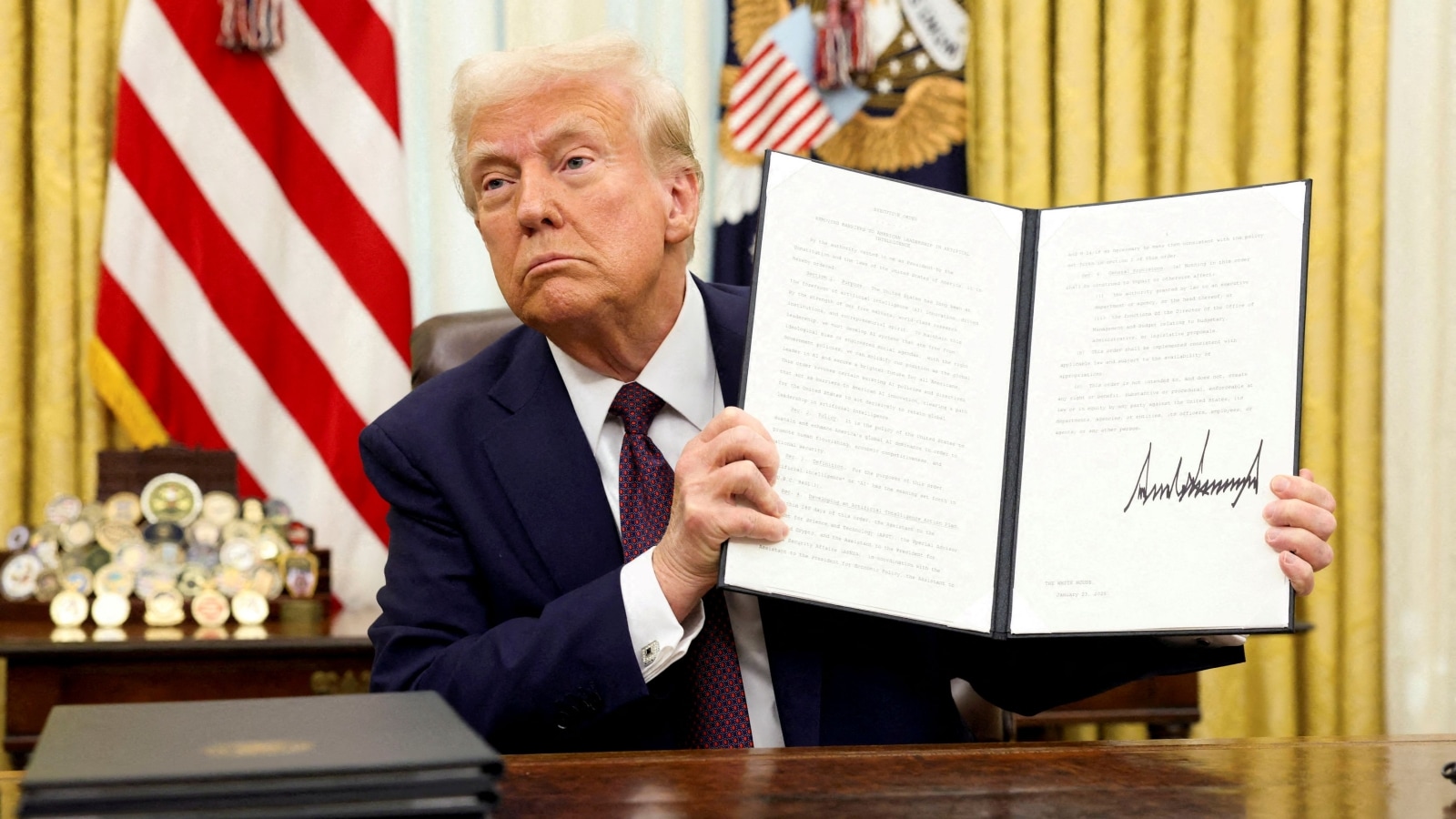 |
|
The escalating trade tensions between the US and China present a significant threat to the global economy. President Trump's recent decision to temporarily halt the imposition of 25% tariffs on Mexico and Canada, while seemingly a de-escalation, masks the underlying volatility. This temporary reprieve is overshadowed by China's swift and pointed retaliation against existing US tariffs. Beijing's announcement of an antitrust investigation into Google, coupled with the imposition of tariffs on US coal, liquefied natural gas, oil, and agricultural equipment, signifies a hardening of stance and a willingness to engage in tit-for-tat actions. This escalation underscores the precarious nature of the current global trade landscape and highlights the potential for widespread economic disruption.
The Trump administration's aggressive trade policy, characterized by the imposition of tariffs on various countries, has created a climate of uncertainty and instability. While the initial aim may have been to protect American industries and jobs, the consequences have been far-reaching. The imposition of tariffs has triggered retaliatory measures from other nations, leading to a complex web of trade restrictions that negatively impact global supply chains. The threat of extending these tariffs to the European Union further amplifies the risk of a full-blown global trade war. The EU, as the world's largest customs union, represents a significant trading partner for many countries, and any disruption to its trade relationships would have cascading effects throughout the global economy. The potential for increased prices for consumers, decreased competitiveness for US manufacturers, and widespread economic uncertainty all loom large.
The impact of this trade war extends beyond the immediate players. India, for example, has experienced both benefits and drawbacks. While the trade diversions resulting from the US-China trade conflict initially benefited Indian exporters, allowing them to capture a greater share of the US market, the overall effect has been mixed. The increased inflation in the US and Europe, a direct consequence of the trade war, has dampened demand for Indian labor-intensive goods, such as textiles and gems. This highlights the complex and often unpredictable nature of global trade relationships and the interconnectedness of the world economy. Any significant disruption in one area can have ripple effects throughout the system, affecting various countries and industries in unforeseen ways.
Professor Richard Baldwin's analysis provides valuable insights into the domino effect of tariff wars. His observation that the tariffs on Mexican and Canadian imports have hampered the competitiveness of US manufacturers is particularly noteworthy. The interconnected nature of global supply chains means that tariffs imposed on one country can have indirect effects on others. In the case of the automotive industry, the tariffs have increased the cost of US-made cars, potentially making imports from countries like Japan, Germany, and Korea more attractive to American consumers. This situation could prompt further retaliatory measures from the US, escalating the conflict further and deepening the economic uncertainty.
The Peterson Institute for International Economics' (PIIE) findings underscore the significant costs borne by US consumers as a result of Trump's tariffs. The estimate of over $1200 per year in additional costs per household highlights the substantial economic burden imposed by protectionist trade policies. This cost, coupled with potential recessionary impacts from retaliatory measures and supply chain disruptions, paints a concerning picture of the overall economic ramifications. The PIIE's report also correctly points out that while Trump campaigned on lowering taxes, the net effect of his trade policies has been a tax increase for most Americans. This contradicts his campaign promises and reveals a disconnect between his rhetoric and the tangible economic consequences of his actions. The long-term implications of these policies remain uncertain, but the immediate effects are undeniably negative for many.
In conclusion, the current trade tensions between the US and China, coupled with the threat of further escalation, represent a significant risk to the global economy. The temporary pause in tariffs on Mexico and Canada offers only a brief respite from the underlying tensions. China's retaliatory measures underscore the increasingly adversarial nature of the relationship, while the potential for further tariffs on the EU amplifies the risk of a global trade war. The interconnectedness of global supply chains and the domino effect of protectionist policies mean that the consequences extend far beyond the immediate participants, impacting various countries and industries in complex and often unpredictable ways. The economic costs, both for consumers and businesses, are substantial, and the long-term implications remain uncertain, but the present situation is fraught with considerable peril.
